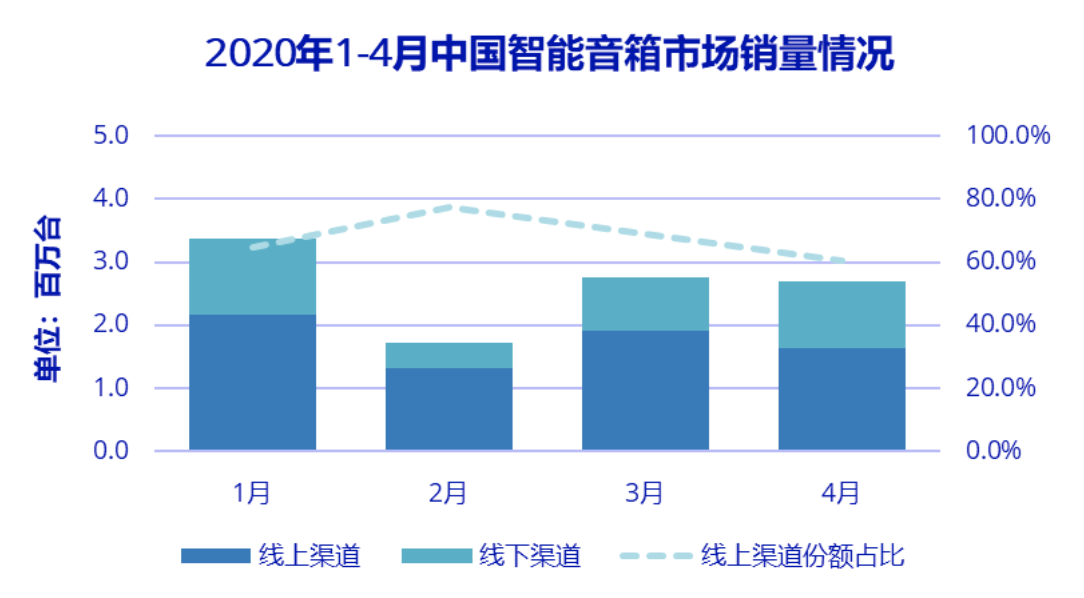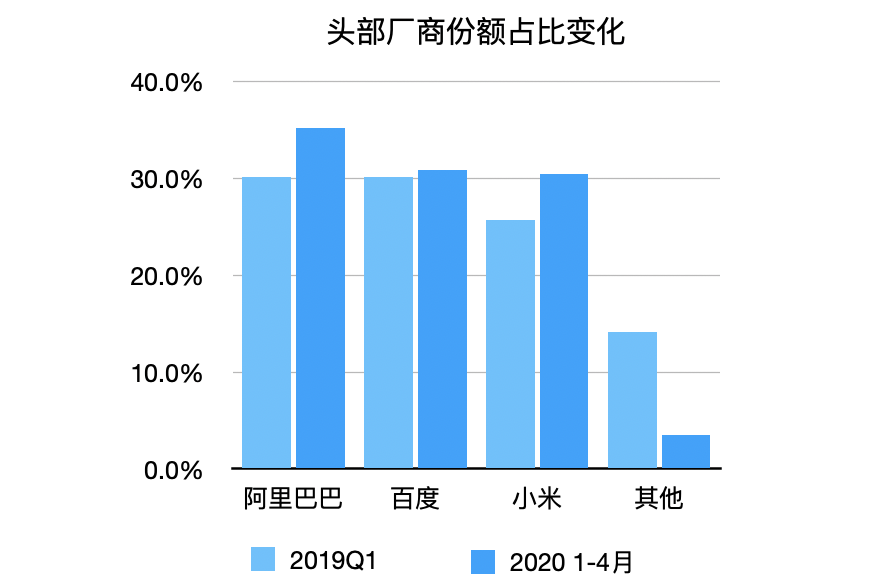The epidemic affected the sales of smart speakers, but at the same time brought opportunities for transformation and upgrading.
On May 25, IDC Consulting released the “IDC China Smart Speaker Equipment Market Monthly Sales Tracking Report.” Affected by the epidemic, From January to April, China ’s smart speaker sales were 10.56 million units, a year-on-year decrease of 14.7%. February, the epidemic season, was hit harder in February, and sales were only half of January.

Source: IDC Consulting
The Matthew effect in the smart speaker market is also more obvious. The three head manufacturers have won 96% of the market, which is a significant increase from the 85.8% of the total share of the three manufacturers in the first quarter of 2019. Alibaba ranked first, with total sales of 3.71 million and a market share of 35.2%; Baidu accounted for 30.9%, ranking second; Xiaomi accounted for 30.4%, ranking third.

Data source: IDC Consulting Cartography:
Alibaba’s Tmall Genie smart speakers’ sales from January to April this year are still dominated by screenless speakers, and they are actively arranging for the market with screen speakers. On the one hand, Ali introduced new large-screen speakers in April to enrich the product category, and strengthened its layout in education and shopping scenarios through large-screen smart speakers; on the other hand, Ali improved the content service with screen speakers.
Baidu ’s focus is on continuing its market advantage in screen speakers. Its sales volume of screen speakers in January-April is the first. However, compared with the first quarter of 2019, Baidu’s sales and Alibaba’s sales accounted for the same market share. Although Baidu’s share increased from January to April 2020, its performance has decreased relatively.
Xiaomi’s online channel sales performed well from January to April, and the proportion of e-commerce increased significantly. During the epidemic, Xiaomi’s IoT ecological chain was closed-loop, to a certain extent, it had a leading role in the sales of its smart speakers in February and March. Xiaomi’s market share is also increasing. In the first quarter of 2019, Xiaomi’s market share was only 25.7%.
In addition, the epidemic is not completeBefore the end, home life will still account for a large proportion, and people’s suppressed consumer demand during the epidemic will be further released, thus prompting people’s demand for smart speakers.
At the same time, the comprehensive upgrade of the voice system is also the future development direction of the transformation and upgrading of smart speaker products. At present, in addition to audio and video content resources and home appliance control, it is difficult for smart speakers to achieve scene breakthroughs, which largely stems from the lack of intelligent applications. In the future, on the basis of sales volume and user improvement, smart speakers should also focus on further digging into family scenes.
IDC analysts said in the report that the future improvement of voice interaction capabilities and the intelligent upgrade of voice systems will further promote the development of the market, and the construction of smart application ecosystems that deeply communicate with voice, vision and other interaction methods will become important for the subsequent development of the market power.